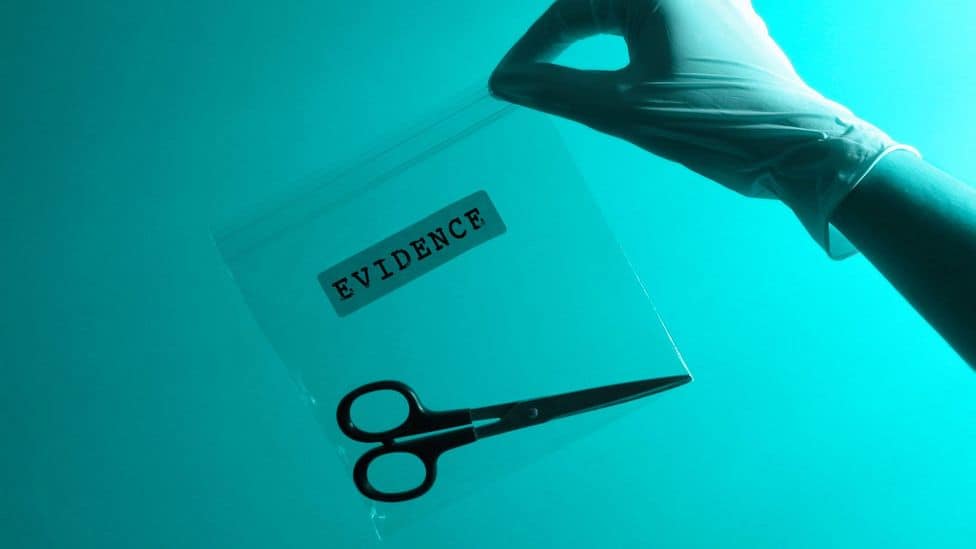As science advances, the role of forensic evidence in criminal defence cases increases. It can also be a deal breaker in a criminal case. Forensic evidence in criminal cases include the more commonly known types of forensic evidence: DNA analysis, fingerprint analysis, gun shot residue analysis, firearms analysis, and drug analysis. However, it also includes other relatively unknown forms of forensic evidence such as handwriting analysis, digital analysis of devices, CCTV and facial recognition analysis.
Forensic Evidence Used by the Prosecution
When a prosecution relies on forensic evidence, they will have to call an expert witness in order to have that evidence admitted into evidence to be used in a trial. The expert witness will have to have the appropriate qualifications and experience in order to be called and cross-examined. Magistrates, Judges and Juries often find forensic evidence compelling when taken on face value. Criminal defence lawyers call this the “CSI Effect” based on the famous American television show “Crime Scene Investigations” whereby forensic scientists are able to use science to crack cases almost immediately, utilising advanced and untested technology to get the “bad guy”. Part of our job is to neutralise the power of the “CSI Effect” and make Magistrates, Judges and Juries so that they understand that forensic science is not absolute and can be challenged.
Challenging Forensic Evidence
Forensic science is always complicated. In science, theories and ideas can never be absolutely proved nor disproved. Rather, theories and ideas can only be accepted or rejected based on supporting or refuting evidence. In criminal cases, forensic science is usually applied to prove a prosecution theory. For example, in a case where a victim is assaulted by a masked offender, if the DNA profile alleged to belong to the accused is extracted from the victim’s clothes it will be used by the Prosecution to argue that the accused committed the assault. The Prosecution will have to call a biologist who is an expert in DNA extraction and analysis in order to state to a Magistrate, Judge or Jury that the DNA evidence supports the Crown contention that the accused could be responsible for the sample to particular statistical probability.
When preparing to cross-examine an expert, an experienced criminal defence lawyer will need to interrogate the qualification of the expert and also familiarise themselves with the science. Criminal defence lawyers become multi-disciplinary “snoops” familiarising themselves with the forensic science being relied upon in order to properly cross-examine an expert. Often, this requires criminal defence lawyers to read text-books and peer reviewed academic articles. They may also advise their clients to engage their own experts to assist them to prepare their cross-examination. Successful cross-examination of an expert can be crucial to a successful defence. It may make the decision-maker (usually a jury) questions the reliability and force of the evidence being relied upon by the Prosecution.
Forensic evidence (or the absence of it) can also be crucial to a successful defence. The Defence may rely upon forensics to argue that the accused was not responsible for the crime by, for example, pointing to a lack of DNA.
The Delelopment of Forensic Science
Complicating matters is the fact that forensic science is constantly changing and developing. For example, only a few years ago fingerprint analysis required 10-point identification (ie, 10 points on a fingerprint which is identical to the base sample). Now Victoria Police uses a verification method, whereby one expert has to have his findings verified by another expert.
New sciences are also developing every day. New to the criminal landscape is cell tower analysis, whereby law enforcement call engineers to give evidence that a number of people were travelling together and were present at the scene of a crime because of the manner in which their mobile telephones travelled across cell towers.
Experienced and competent criminal defence lawyers keep across these developments and, when forensic science is relied upon in any given case, criminal defence lawyers should be able to analyse and interrogate the science in order to defend their clients. They should also be able to properly analyse the data underpinning the reports. These include chain of custody records, raw data, expert notes and draft reports. It is only once a criminal defence lawyer is across the science and the raw data that they can properly cross-examine an expert with a view to testing the reliability of the evidence sought to be relied upon.
How an Experienced Law Firm Can Help Dispute Forensic Evidence
Established law firms, such as Galbally Parker Lawyers, will have access to a range of independent experts in the individual areas of forensic science in order to obtain independent reports, review the reports relied upon by the Prosecution and to potentially give evidence for the defence at Trial.
If you are preparing for a trial, it is important that you obtain representation from experienced and knowledgeable criminal lawyers, such as Galbally Parker. We have a team of legal experts with experience in a range of legal areas, including theft, assualt, sexual offences, murder and manslaughter, fraud and workplace crime.


